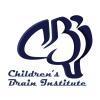Get Care
Autism Spectrum Disorder Treatments
Autism Spectrum Disorder (ASD) is a developmental disability. People with ASD may communicate and interact in ways that are different from most other people.
ASD is called a “spectrum” disorder because people with ASD can have a range of strengths and challenges and need more or less support for those challenges. The learning, thinking, and problem-solving abilities of people with ASD can range from gifted to severely challenged. Some children and adults with ASD need much assistance in their daily lives; others need less.
Treatments
Currently, no treatment has been shown to cure autism, but several interventions have been developed and studied for use with young children. These interventions may reduce symptoms, improve cognitive ability and daily living skills, and maximize the ability of the child to function and participate in the community.
The differences in how ASD affects each person mean that people with ASD have unique strengths and challenges in social communication, behavior, and cognitive ability. Therefore, treatment plans are usually multidisciplinary, may involve parent-mediated interventions, and target the child’s individual needs.
Behavioral intervention strategies have focused on social communication skill development—particularly at young ages when the child would naturally be gaining these skills—and reducing restricted interests and repetitive and challenging behaviors.
Types of Interventions
There are many types of interventions available. The types of treatments generally can be broken down into the following categories:
- Behavior and Communication Approaches
- Dietary Approaches
- Pharmacological
- Complementary and Alternative Medicine
FAN
Our Fast Access Neurology (FAN) Service ensures a clinic visit with an expert pediatric neurologist within 24 to 72 hours after referral or initial contact with the Children's Brain Institute
Pediatric Neurological Care
Your Family’s Partner
Autism, cerebral palsy, specialized epilepsy management, ADHD testing and treatment, our experience with pediatric neurological disorders make us an excellent choice for for your child.
We value your child’s well-being and are guided by our ethical and moral standards in every detail of our practice. We demonstrate this through our continually transparent communication with our patient’s families.
Accepted Health Insurance Types
Various health insurance types are accepted, including Medicare and most HMO and PPO insurance.
